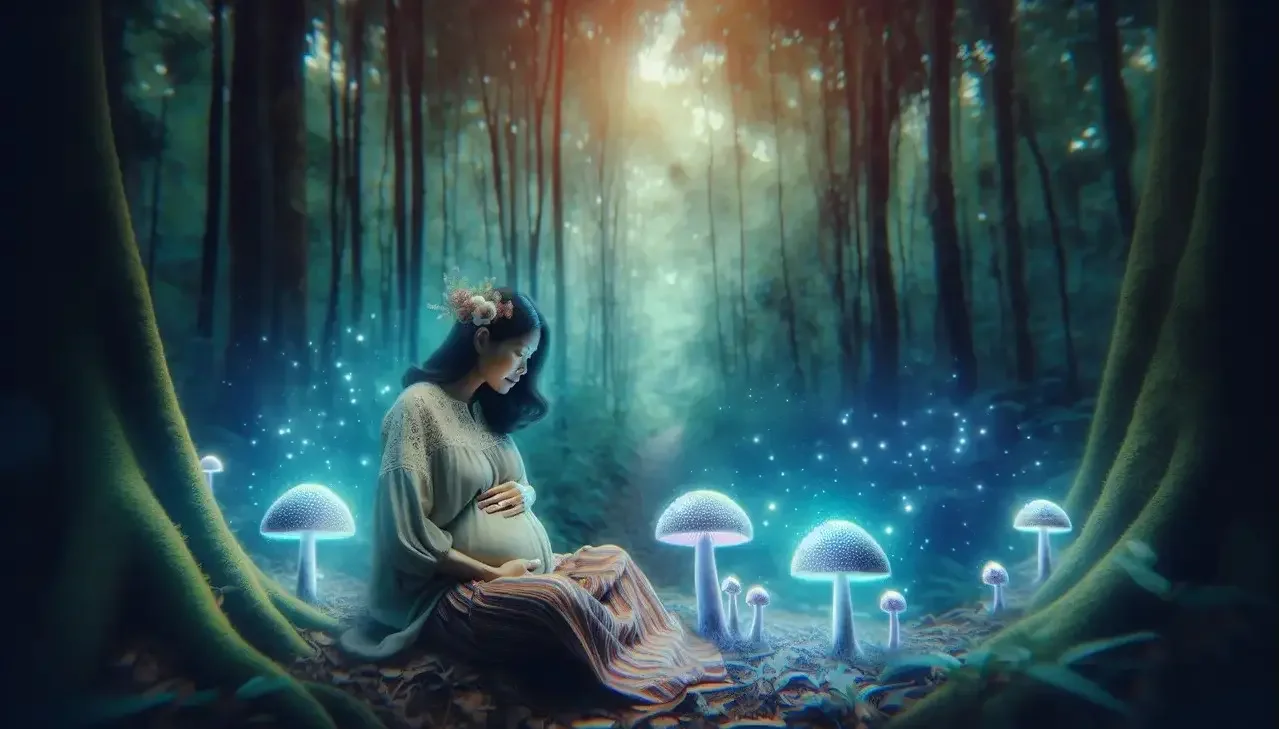Magic Mushrooms and Their Potential Impact on Postpartum Mental Health
Postpartum depression is a serious condition that affects many new mothers, often leaving them feeling overwhelmed and isolated. Recently, researchers have shifted their focus to a surprising potential ally—magic mushrooms. As unconventional as it may sound, these fungi, known scientifically as psilocybin mushrooms, are gaining attention for their possible benefits in supporting postpartum mental health. In this blog, we delve into the potential impact of magic mushrooms on postpartum depression and what the future may hold for this intriguing area of study.
Understanding Postpartum Depression
Many new mothers experience mood swings, anxiety, and sadness after giving birth. These feelings are often temporary, but for some, they can evolve into postpartum depression—a condition that can seriously affect a mother's ability to care for her newborn and herself. The importance of recognizing postpartum depression lies in its complexity and potential impact on families. It involves more than just feeling down; it can cause a mother to feel disconnected from her baby and experience a lack of interest and joy in activities once loved.
Family support and open dialogues can play a crucial role in identifying and addressing postpartum depression. Often, awareness helps counteract feelings of guilt or inadequacy that mothers may face. Recent studies highlight the significance of community and psychological support, which can offer a bridge to recovery for affected individuals.
What Are Magic Mushrooms?
Magic mushrooms contain psilocybin, a naturally occurring psychedelic compound. Long used in spiritual and healing ceremonies, they are now being studied for their mental health benefits in controlled, therapeutic settings. Psilocybin has been known to create a sense of euphoria, altered perceptions, and a deeply introspective mental state. These mushrooms offer users unique experiences that can contribute to altered perspectives and reduced stress when managed properly.
Historically, many indigenous cultures have regarded psilocybin mushrooms as sacred, using them for rituals and healing. Today's researchers are investigating whether these ancient practices hold keys to modern psychological healing, particularly focusing on psilocybin's ability to influence serotonin receptors and possibly act as a mood stabilizer.
The Science Behind Psilocybin and Mental Health
Research shows that psilocybin can help rewire brain networks, potentially alleviating symptoms of depression by promoting new ways of thinking and emotional response. This has sparked interest in their application to postpartum mental health. Brain imaging studies have illustrated how psilocybin impacts areas of the brain like the default mode network, which is associated with self-reflection and ruminative thought processes often present in depression.
By reducing activity in this network, psilocybin may help break the cycle of negative thinking and introduce new emotional pathways. Its effect on increasing neuroplasticity—the brain's ability to form and reorganize synaptic connections—is also a promising avenue for addressing complex mental health issues, including postpartum depression.
Current Studies and Findings
Preliminary studies indicate that psilocybin therapy may reduce depression and anxiety symptoms. While these studies are promising, more research is needed specifically focusing on postpartum depression to understand its full potential and safety. Clinical trials are being conducted to explore psilocybin's efficacy and understand how it might complement or substitute current treatments. Researchers are particularly interested in measuring long-term effects and the potential for reducing reliance on conventional medication.
One noteworthy study has shown that psilocybin can significantly lower depression scores when administered in a controlled environment, demonstrating its potential as an adjunct to psychotherapy. Continued exploration is pivotal to uncovering how these therapies may be integrated into standard treatment paradigms for postpartum conditions.
Safety and Ethical Considerations
As with any treatment involving psychedelics, safety is a paramount concern. Ensuring that therapies are conducted in controlled environments with professional supervision is crucial. Ethical guidelines must also be developed to protect vulnerable populations, including postpartum women. The developing nature of psilocybin research necessitates rigorous safety standards to prevent misuse and ensure efficacy.
Legal frameworks and ethical guidelines are also evolving to support safe clinical practices. Researchers advocate for comprehensive informed consent processes, emphasizing that participants need a clear understanding of potential risks and benefits. Ongoing, ethical discussions are important to navigate the balance between innovative treatments and established medical standards.
Potential Benefits and Risks
While psilocybin may offer a new approach to treating postpartum depression, it is essential to weigh these potential benefits against risks, including side effects and legal issues. Education and professional consultation are key to making informed decisions. Potential benefits include a reduction in depressive symptoms, improved emotional functioning, and a deeper sense of connection and understanding.
However, risks such as mixed psychedelic experiences, anxiety, or psychotic episodes cannot be overlooked, especially given the differing physiological responses individuals may have. Furthermore, the legal landscape for psilocybin use varies globally, which complicates access and research. Therefore, thorough planning and guidance are imperative to safely explore psilocybin's role in postpartum care.
Exploring New Frontiers for Maternal Mental Health
While the research into psilocybin therapy for postpartum depression is still in its early stages, the potential benefits cannot be overlooked. As we continue to explore new frontiers in maternal mental health, magic mushrooms may pave the way for more effective and holistic treatments. Always consult with a healthcare professional before considering any alternative therapies. The journey towards mental well-being is personal and unique to each individual, and advancements like these offer hope for mothers everywhere. Visit Happie Mushrooms for more insights into innovative treatments.
